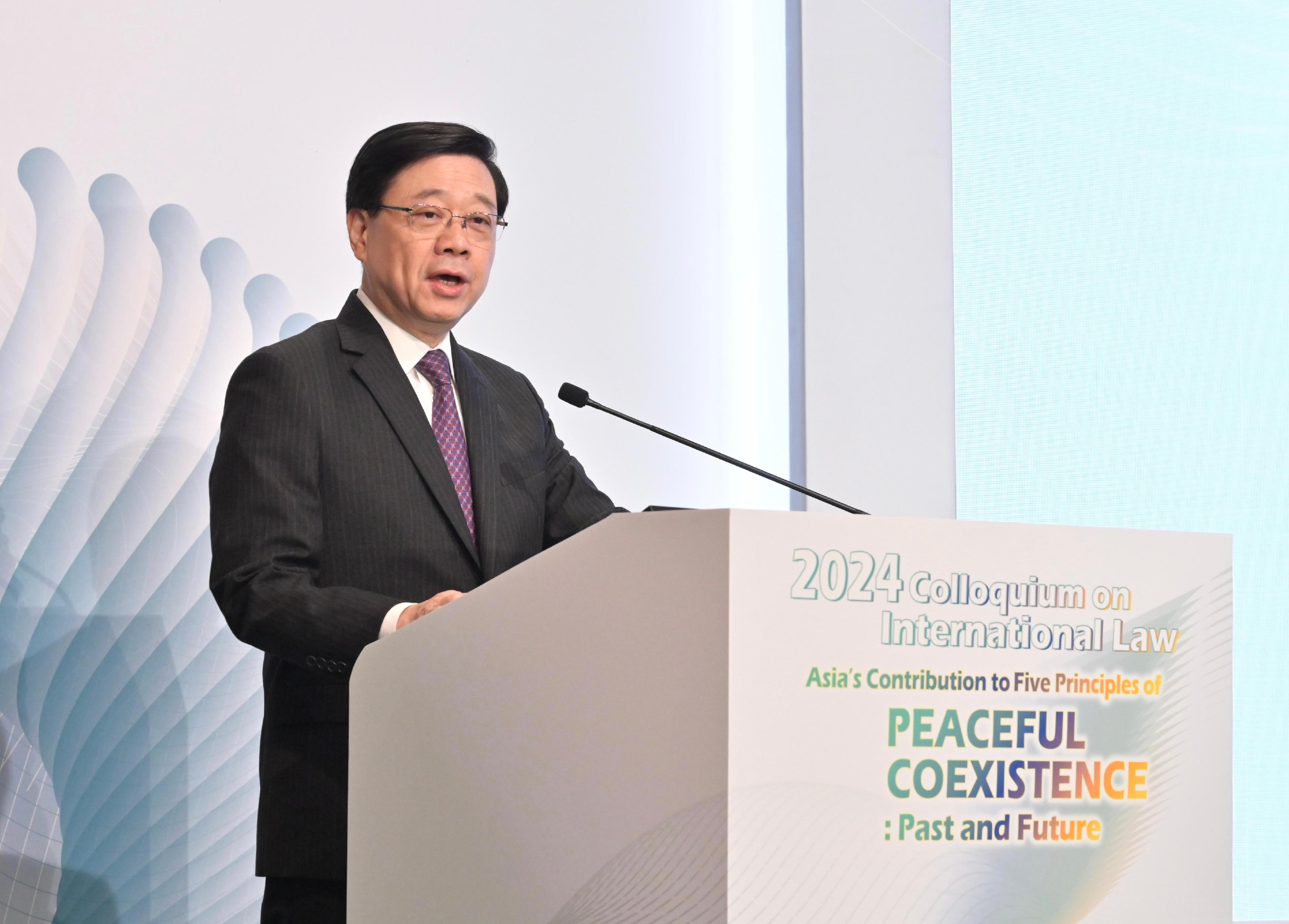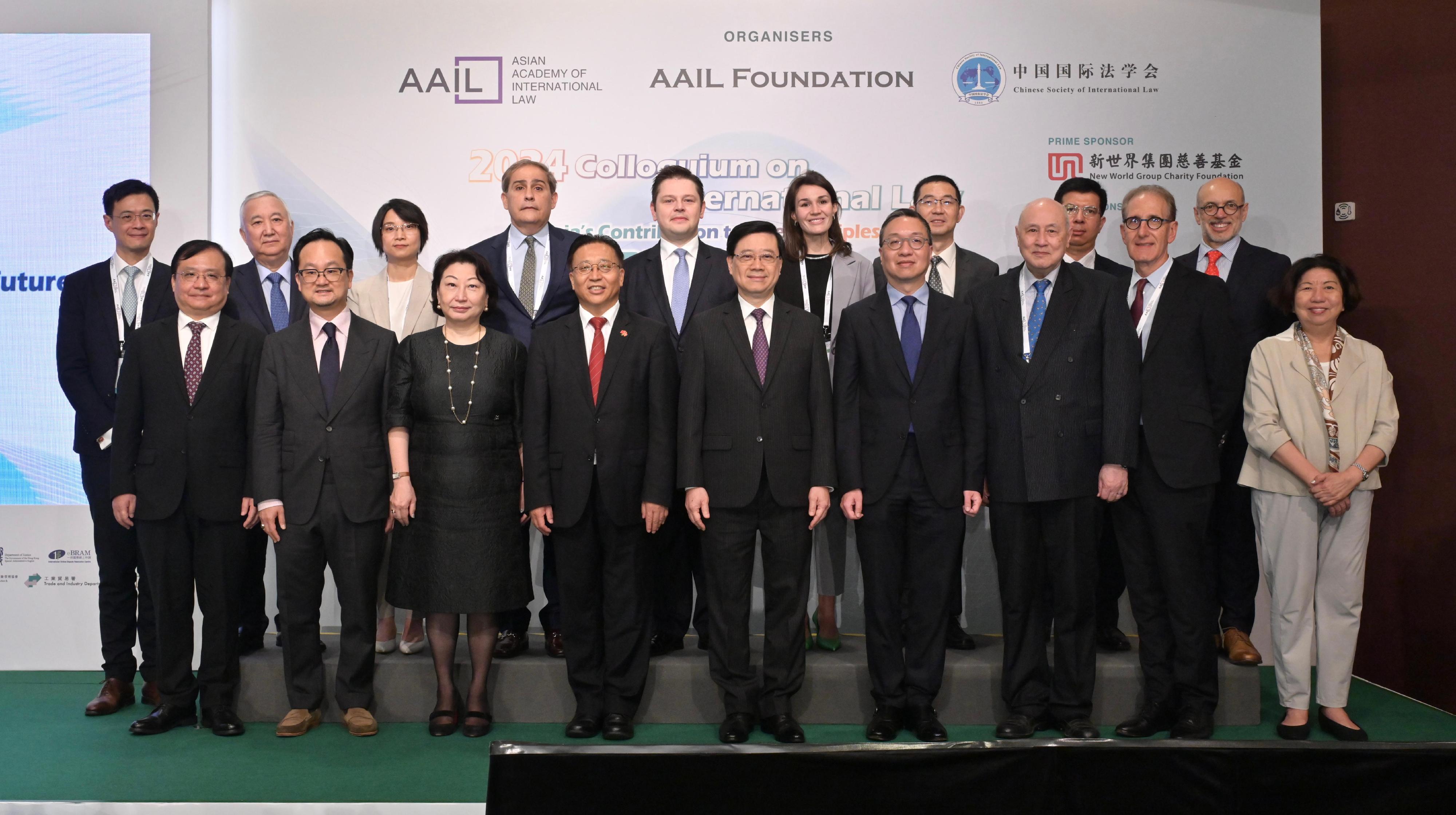
Hong Kong’s legal professionals will have enhanced opportunities to excel in the Chinese mainland, Chief Executive John Lee Ka-chiu said during the 2024 Colloquium on International Law on Friday.
ALSO READ: HKMU LiPACE pioneers cross-boundary vocational education program
This development has been propelled by the consensus on further liberalization of trade in services under the Mainland and Hong Kong Closer Economic Partnership Arrangement, which was achieved by the two sides recently.
Universal recognition of the Five Principles is undeniable. Its underlying doctrine epitomizes the purposes and principles of the United Nations Charter, which emphasizes respect for sovereign equality, the prohibition of the threat or use of force and the essential importance of the peaceful settlement of disputes.
John Lee Ka-chiu, Chief Executive
Based on the consensus, new measures for further liberalizing trade services will be announced soon. They will encompasses legal and financial services, testing and certification-related services, architectural services, and various other sectors, Lee said.
READ MORE: Xi's speech at anniversary of 'Five Principles of Peaceful Coexistence'
The expansion of scope in legal services can accelerate Hong Kong’s rise as a center for international legal and dispute-resolution services in the Asia-Pacific region, Lee added.
The 2024 Colloquium on International Law took place on Friday at the Hong Kong Convention and Exhibition Centre. This year’s colloquium was themed “Asia” Contribution to Five Principles of Peaceful Coexistence: Past and Future,” to mark the 70th anniversary of the declaration of the Five Principles of Peaceful Coexistence.
In his speech, Lee said the principles are deeply rooted in Asian philosophy and culture, including such traditional Chinese beliefs as “peace is the most precious”, “peace among all nations”, and values such as love, kindness and peace — beliefs cherished by many Asian countries.
“Universal recognition of the Five Principles is undeniable. Its underlying doctrine epitomizes the purposes and principles of the United Nations Charter, which emphasizes respect for sovereign equality, the prohibition of the threat or use of force and the essential importance of the peaceful settlement of disputes,” Lee said.

Although seven decades have passed since the Five Principles were announced, they are still very much present, and needed, in today’s turbulent world, Lee noted.
Many Asian countries have contributed to the Five Principles, some through their participation in the Belt and Road Initiative, since building a community with a shared future aligns with the spirit of these principles.
READ MORE: Xi addresses meeting on Five Principles of Peaceful Coexistence anniversary
By removing barriers to trade and building a more interconnected world, Asian countries continue to fuel growth in the region, and well beyond, Lee said.
Hong Kong will continue to abide by the spirit of the Five Principles of Peaceful Coexistence through the Belt and Road and other initiatives for greater regional integration, Lee added.
READ MORE: Embracing the path of coexistence
Cui Jianchun, commissioner of the Ministry of Foreign Affairs in the Hong Kong Special Administrative Region, who also attended the meeting and delivered the opening speech, said that the “one country, two systems” principle represents an innovative approach that applies the principles of peaceful coexistence to address intra-state issues.
Cui regarded the Five Principles as “Chinese wisdom”, saying that they are the means to address the collective challenges faced by human beings.
He said he hoped Asian countries can discard the mindset of the “Cold War”, confront crises jointly and resolve disputes through a wide array of mechanisms.


